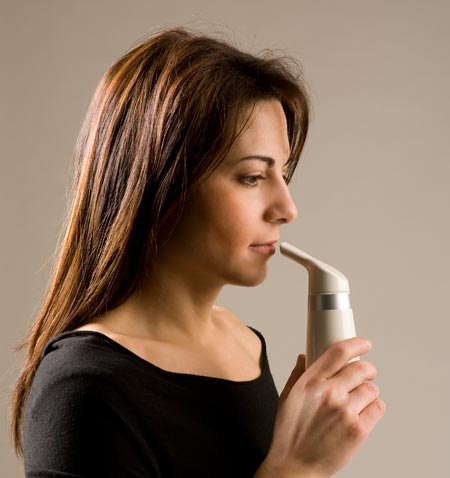I’ve suffered with asthma for as long as I remember and have always had various garishly coloured inhalers to take twice a day to try and prevent attacks which I invariably forgot to take. As a child, I was pretty excited to find out after a trip to the doctors that my brown inhaler had been swapped for a snazzy new purple one. What a thrilling childhood I led.
I tended to have attacks more in the winter, my body seemed to be sent into shock when braced with cold air. It didn’t help that I was brought up around cats although I later found out that I was actually allergic to them. Growing up around them, everyone assumed that I was just extremely prone to colds and wheezing fits. Even after we discovered that this was the case, my mum continued to keep cats in the house perhaps preferring them to me. Even now, I’ve moved out of my parent’s house, I stash emergency anti-histamines around their house to try and prevent an attack when I’m there.

Asthma attacks mild or otherwise can be extremely scary, you feel your windpipe narrowing and your whole chest hurts with the effort of trying to breathe. The amount of times even now I’d forget to take my inhaler with me and even the slightest wheeze can turn into something bigger when it’s teamed with the psychological panic of knowing that you couldn’t treat it.
I’d heard about the Salitair from a family friend who suffered with lung disease and who had it recommended to him. The Salitair is a plastic inhaler containing salt from the Klodawa mines of Poland. When inhaling on the device, the moisture of the air passing through the pipe absorbs micron sized particles of the salt which are then introduced to the respiratory system. These particles help to cleanse the respiratory system and flush away impurities from the surface of cells. I wasn’t sure about the “special” salt so I researched into salt therapy a bit more.
People have always headed to the seaside to “take in the sea air” with the vague notion that it will have health benefits but there is apparently some scientific reasoning behind this. It turns out that the origins of salt therapy lie in Eastern and Central Europe and can be traced back to the mid 19th Century, when a Polish health official, Dr. Felix Boczkowski, noticed that the workers of salt mines never became ill with any lung diseases. Research was then subsequently done on this basis and because it is not always possible to pop over to Poland when an attack strikes, the Salitair has been designed to replicate the effect of salt therapy.
I first tried it over hayfever season, using it for around 15 minutes a day and after about a week I found that my breathing was much easier. I quite liked the vaguely salty taste of it, if I closed my eyes and concentrated very hard, I could almost imagine I was in a salt infused steam room at the spa. Almost.
I’d recommend this product to anyone with all types of respiratory problems, it can certainly make your life easier.
Charlie Osbourne is a customer services executive working for Tower Health in Nottingham, Suppliers of the salt pipe inhaler called Salitair.
How Salt Pipe Therapy Improved My Asthma

